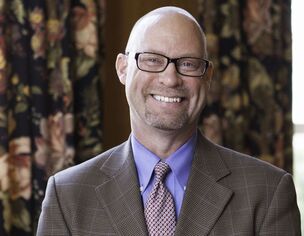|
CAS President Gavin Henning advocates for a reframing of the term assessment in order to dispel fears about the language and process. Call it what it is -- Learning! What will you learn this year about your students, your programs, your institution, and your practice?  About 16 months ago our institution started an institutional assessment steering committee (IASC) as a vehicle to improve assessment on campus. Composed of representatives from administrative and academic units across campus, we have been engaging in a number of activities to help increase confidence and capacity in assessment and also begin to build a culture of assessment. While we are providing training activities including a successful regional assessment conference in May 2017 and fun assessment games during an all campus meeting, building assessment processes and systems, and even investing in technology to help support this work, a culture of assessment is not emerging. Assessment still seems to be ad hoc and isolated. There appears to be some resistance to integrating assessment into practice. I believe this is due three things. First, assessment faculty and staff perceive assessment as a burden enacted by others, either the college administration or NEASC (New England Association of Schools and Colleges), our regional accrediting body. Assessment is something we MUST do, not something we WANT to do. Another reason for resistance is the lack of understanding of the concept. Many people believe that assessment is all about numbers and statistics, not about stories regarding how effective activities are. A final reason is an aversion to the term assessment, which likely relates to the feeling that assessment is being imposed. To address these issues, the IASC has stopped using the term “assessment” and begun using “learning” in its place. We've realized that assessment really is just learning – learning if goals and outcomes are achieved and if the strategies being used are working. Assessment isn't rocket science. It is an inquiry process, beginning with a question. Questions could cover topics such as, are students learning how mitosis works in my class, what are students learning by being a resident assistant, are the retention strategies working to increase 1st year to 2nd year retention. Once the question is asked, data can be gathered and analyzed to answer the question. Once the question is answered, then further action steps can be developed and implemented to address any shortcomings. Thinking about assessment as learning helps demystify the concept, lessens aversion to the word, and decreases resistance paving the way for assessment to be activity freely engaged in on a daily basis as it is embedded into everyday practice. Reframing the concept can make all of the difference. --- Dr. Gavin Henning is Professor and Program Director for the Master of Higher Education Administration and Doctorate of Education at New England College. He also is the President of CAS and a recent past present of ACPA: College Student Educators International. Gavin actively contributes to higher education assessment literature, and he recently co-authored Student Affairs Assessment: Theory to Practice and co-edited Coordinating Student Affairs Divisional Assessment: A Practical Guide. He holds a Doctor of Philosophy degree in Education Leadership and Policy Studies and a Master of Arts degree in Sociology both from the University of New Hampshire as well as a Master of Arts degree in College and University Administration and a Bachelor of Science degree in Psychology and Sociology from Michigan State University.
0 Comments
Leave a Reply. |
AuthorWrite something about yourself. No need to be fancy, just an overview. Archives
July 2024
Categories
All
|
|
Council for the Advancement of Standards in Higher Education. All Rights Reserved.
2455 East Sunrise Boulevard, Suite 816| Fort Lauderdale, FL 33304 800.889.7270 (p) | [email protected] |
